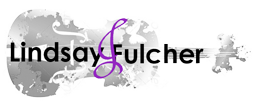Photo Credit: Philip Fulcher
I believe continuing education is very important to the music education profession. I also believe 'continuing education' does not have to involve going back to school. There are hundreds of options for participating in workshops, conferences, webinars, camps and other venues. Teachers should expand their knowledge and teaching techniques using the format that appeals most to them. But teachers must continue learning and expanding their 'bag of tricks' in order to stay relevant and effective with their students. For me, continuing education involves conferences, workshops, webinars, and returning to school. When I graduated with my Bachelor of Music Education I knew that I was going to go back for my Masters at some point. As I taught K-12 I learned a lot about myself and my teaching preferences but I also knew that I had potential to be an even stronger teacher. I had a fantastic experience at Penn State working on my Masters of Music Education so when I got the opportunity to stay and begin my doctorate, it was right.
My scholarly pursuits are constantly developing. Currently I am most interested in the following areas of music education research:
- strings/orchestra
- technology
- diversity
- female leadership in music
I completed a number of research papers in my time at Penn State, some of which may be viewed below. I am excited for this venue to share my thoughts and I am working toward other publications, conference sessions, and outlets for sharing.
Online Musical Collaboration for High School Students: The purpose of this study is to observe how high school string players, from an existing chamber group, view online musical collaboration.
Handbell Notation App for iOS I wrote this application for iOS in an "Apps for Education" course at Penn State. This was my first journey into programming and I really enjoyed it. I share this partly so that other teachers can see it is possible to create apps and computer programs without extensive web development training. Teachers should trust that their ideas for apps and software are good as they are grounded in classroom experience and practical knowledge. If you know an app would be beneficial to your students, but don't know how to begin programming, enlist help and bring your idea to life.
The Skype Orchestra: Collaboration is Key in Online Music Making I created this paper while taking a course from Dr. Matthew Thibeault at the University of Illinois. I joined the class each week using Google Hangout which in and of itself was quite a learning experience. I began to think deeply about online musical collaboration and the many possible futures for music education. This paper explores the literature existing on online musical collaboration, the current ways to practically collaborate, and a few existing ways to collaborate. I share it so you might take ideas from it and think yourself about the possibilities for the future.
Comprehensive Assessment Plan This sample plan was created in an assessment class at Penn State. This is a sample of how I might approach assessment as the teacher of an undergraduate string techniques class. I cannot claim ownership of all these ideas as they are a compilation of things I have learned from my teachers and professors along the way. I share it to show my ideas and also to show the importance of incorporating a variety of regular assessments into performance-based classes.
François Rabbath: Bass Pedagogue As a violist, I knew very little about double bass pedagogy. I was grateful for the opportunity to research François Rabbath as he was an influential and innovative pedagogue. I do not think I am alone, as an upper-string player, in being a bit ignorant of the different double bass instructional techniques. I hope that by sharing this paper, others might learn a new way to approach the bass.

